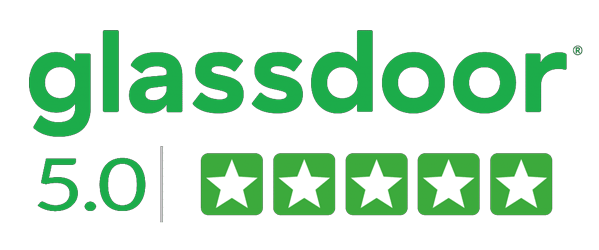
What to Expect & How to React in your interview
Every time you go to an interview, you’re prepared to respond to the questions in a way that accurately conveys your character, background, and abilities while also satisfying the hiring manager. It surprises you that you almost certainly know the typical interview questions and the prepared responses, but most of the time, things don’t go well. Then, what happens? Through the following guide, Whitecollars offers comprehensive answers.
10 Interview Questions & how to answer them perfectly
1. Could You Tell Me About Yourself and Describe Your Background in Brief?
Before you enter the interview room and shake hands with the recruiter, you can be 100% sure that you will be asked this question, the opening question: “Tell me about yourself!” It appears simple and direct, but it’s the first impression question and defines how your interview will go minutes later.
There are many strategies you can use to answer this question. Consider structuring your events as a present that is supported by the past and leads to the future you desire. Don’t forget to include the job you are applying for on top of your action plan. This could answer the question: “Why are you interested in this position?” But many recruiters might push you to get the answer they seek.
Start with relevant achievements that are backed up by statistics, and mention the education you’ve received and the skills you’ve picked up that primarily contributed to these favourable results. Position the accomplishments from the career goals you want to achieve and make a connection between them and the justification for thinking you belong in this position.
It’s like a two-minute self-branding ad, highlighting the aspects of your CV that convinced the recruiter to schedule this interview, so keep your response succinct and straightforward.
2. How Did You Hear About This Position?
It might seem like a straightforward question asking where you heard about the position, but its answer is a fantastic chance to demonstrate your passion for the position and what initially piqued your interest in it.
If LinkedIn is the source that brought you to this position, then mention it here. Or is it a specialized job board? Or perhaps a company insider suggested it? If you are referred by an existing employee, explain the qualities they see in you that make you a good fit for the job and give credit where credit is due.
If you found the job through an advertisement, explain why you are passionate about it. This could be due to the company culture, the chance for advancement and promotions, or perhaps the perks.
If you closely monitor the business’s website and social media accounts, your response would be ideal because you would have been anticipating the opening when it was announced. This demonstrates your confidence in the company as the kind of workplace you’ve always yearned for. This could answer the next question.
3. What Type of Work Environment Do You Prefer?
One of the common interview questions whose answer is to simply describe the environment found in the workplace you are applying for. Support your answer with the reasons that make your characteristics comply with the environment’s qualities and how it motivates you to work better.
The major source of knowledge about the work environment comes from online channels and insiders who currently live in this environment. This could be the biggest trigger for applying to this position. You can also get the dominant vibes in the business through the reviews employees have left on job boards
Knowing the background of the business also helps you know what its environment looks like. Is it a startup? It’s mostly a less formal, but more stressful environment that guarantees the business’s survival. Is it a deep-rooted enterprise? It mostly observes that the regime is as important as the work itself; it believes in fixed rules that accept no discussion.
4. How Do You Deal With Pressure or Stressful Situations?
Another critical interview question that needs a practical answer that you implement. An answer that says “I don’t get stressed” is unrealistic and is the same as not answering. Here, the recruiter looks for practices that you follow and that result in continuity of workflow without any issues.
Find the activity or the habit that makes stress vanish within hours. It could be a morning run, or meditating and practising gratitude. On the other hand, a night soccer match could help you get rid of any negative energy. Develop the answers that represent yourself and always make positive changes for you.
It’s a good chance to tell the recruiter about the most stressful situation you’ve been through at work and how the mindset or the activity you adopt helped you to overcome the stress and turn it into an opportunity for growth. The answer to this question measures the degree to which you can resist the stresses that work could produce.
5. Do You Prefer Working Independently or on a Team?
Whether you’re an introvert or an extrovert, being part of a team is essential in any company. You should show positive results in both cases, with more inclination towards being an excellent team player. The question could seem tricky, but it’s another opportunity to illustrate your cooperation and leadership skills.
Demonstrate situations If you have been a leader in a team, define the principles that helped you to manage the members if it was stressful, and how you managed to overcome them. On the other hand, when you were a team member, determine what obstacles you faced in dealing with difficult coworkers and the way you interacted with them. If you have positively incubated stubborn and angry colleagues, illustrate these situations.
Also, discuss the advantages and disadvantages of working solely and mention the situation when you managed a task or project alone from A to Z. Display the results and prove that you believe in flexibility that allows you to work, whether in a team or alone.
6. When You’re Balancing Multiple Projects, How Do You Keep Yourself Organized?
How are the tasks going to fit into your schedule? You should base your response on this since that is what this interview question means. It evaluates your capacity for multitasking as well as your time management abilities. Here, you should mention the strategy you mostly follow to manage your time and projects.
Like any methodology, you must provide examples of its intricate steps using real-world circumstances. Establish your task prioritization strategy. Is it determined by their scope, length, deadlines, or even level of dependency? How do you make sure your plans come to fruition after careful planning? Whether you’re building to-do lists, using task management software, setting reminders, or else.
You should also illustrate the process you used to complete a task you’ve never done before. How do you even begin to explore it? Internet navigating, knowledgeable coworkers, or just getting started by using your knowledge and experience? Cover the metrics that tell you that the task is correctly done or it has blunders before submitting it.
Regardless of the techniques you use, you should emphasize that there’s always room for improvement. Any technique you’ve used is based on the numerous trials and errors that led to the best current techniques.
7. What Did You Do in the Last Year to Improve Your Knowledge?
A year is merely a sample of the years you will live after this one. This interview question digs deep to find answers related to achievements, levels of development, and fresh skills and knowledge you’ve learned in the last year. The recruiter can predict how you will spend your time with the new employer based on this. Is it an employee hibernation or filled with energy and motivation?
When you consider an event as an achievement, determine the metrics that show that it is one, comparing it to peers, market research, or high-rank recruitment agencies. Based on statistics, numbers, or studies, an achievement makes you one of the best candidates locally or even in comparison to those with the same years of experience.
Showcase the verified resources that you learn from and that help you get all the latest updates in your field. Are they academies, online platforms, books, magazines, encyclopedias, or even experts? Make an effort to bring up institutions, periodicals, and public figures that you believe the interviewer will find credible and trustworthy.
8. What Are Your Salary Expectations?
It could be one of the annoying lines recruiters mention. As much as possible, put off responding until you fully comprehend your job responsibilities, the tasks you will be expected to perform, and any additional compensation benefits the employer may provide. But before the interview, you should have done your research related to the salary ranges of the role in the market and the salaries that the employer provides in general.
Before attending the interview, you should be pretty sure that the offered salary will satisfy you. There are many verified websites where employees mention the salary they receive from employees. It’d be perfect if the new employer was listed on these websites.
When you finally respond to this interview question, make an effort to choose a number that is more likely to fall between the high and low limits. The atmosphere for negotiations is improved as a result. The salary you request should be more than you can tolerate.
Another approach suggests switching places and asking the employer about their salary range before responding to the question.
9. Are You Applying for Other Jobs?
Never use a job as your lifeboat; instead, try to seize several excellent opportunities at the same time that meet your requirements and are in line with your skills. This will improve your situation and enable you to make a decision with freedom of choice and independence, free from any sort of pressure. You decide what best suits you.
The employer asks this question for two reasons: first if you have no other options and this job is the only opportunity you’ve had success with, it gives the employer the advantage in salary negotiations.
This inquiry also aims to establish your position in the market and the types of businesses that are vying for your attention. Startups, small businesses, medium-sized businesses, or well-known, large corporations? Does employing you promote the employer to a higher position or demote them? It would be an ideal situation if the other opportunities are competitors of the new employer.
10. From Your Resume, It Seems You Took a Gap Year. Would You Like to Tell Us Why That Was?
There are many reasons why gaps appear on a resume, including travelling, having a baby, caring for elderly parents, dealing with health issues, and others. It’s crucial to highlight the aspects of this phase that allowed you to get through it and the outcomes you learned about once the gap was closed.
If the interview went well and you’re ready to accept the job offer, or if it went poorly and you’re just waiting for a thank-you email, you’ll know after it’s over. If you pass this interview, you may attend a second interview that includes new questions and technical assessments.
Whitecollars is always willing to assist candidates and potential employees who require professional guidance and career support. Until you get the job you want, our experts will provide you with advice. Set up a consultation with one of our specialists and get a quote now.


